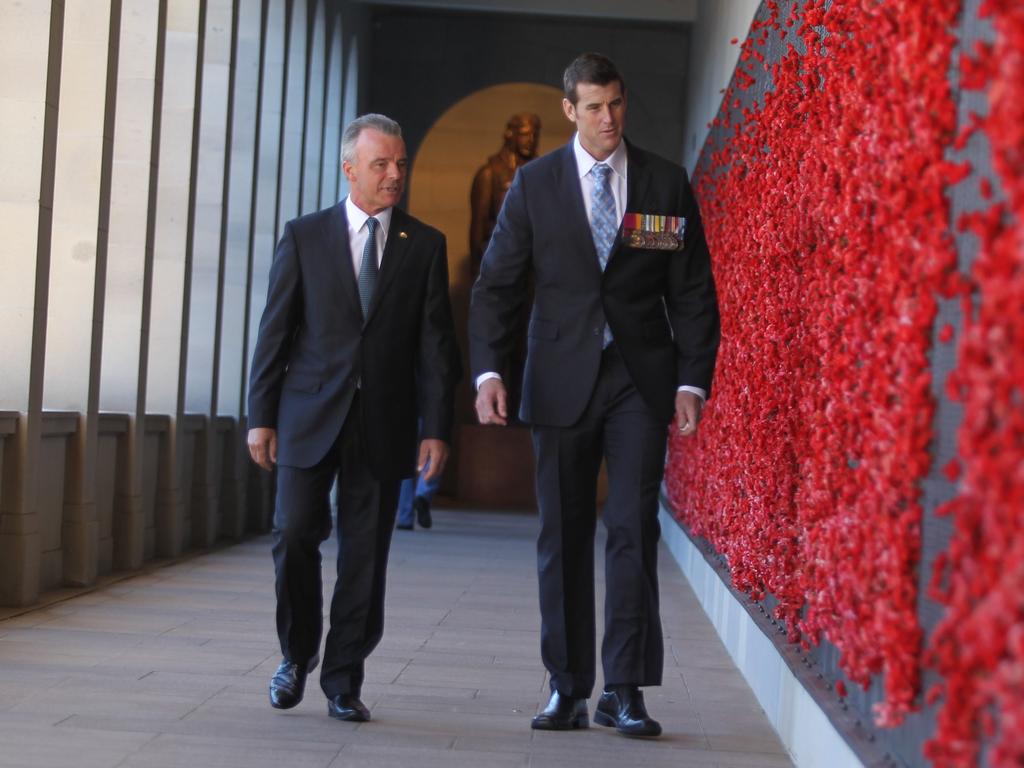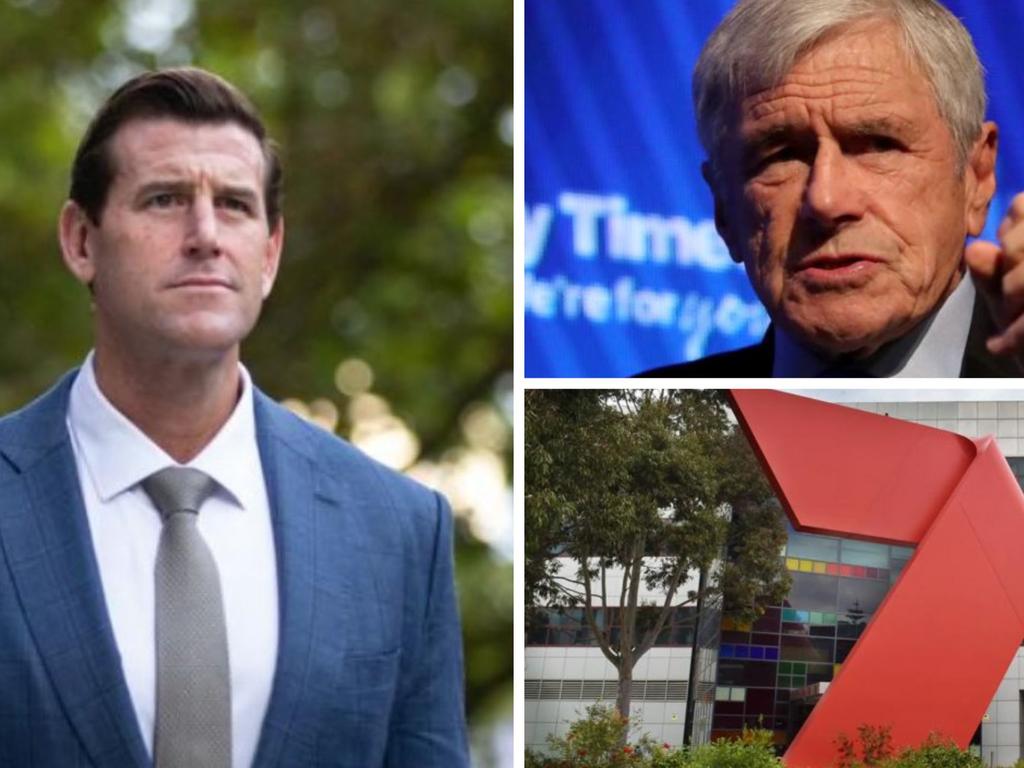Crossing the Line book review: Courage under fire hits its targets in Nick McKenzie’s account of his Ben Roberts-Smith investigation
Nick McKenzie thought some of the rumours he’d heard about war crimes committed by Australian SAS in Afghanistan were far-fetched. They were mostly proved true.
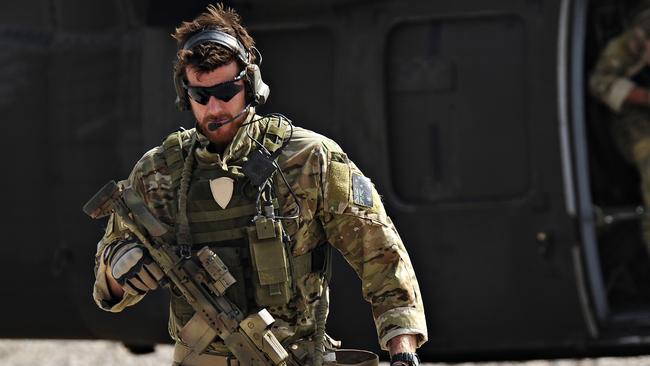
Ben Roberts-Smith should probably have done his homework before taking on journalists Chris Masters and Nick McKenzie for implicating him in war crimes committed by SAS soldiers in Afghanistan.
Championed by the director of the Australian War Memorial, former defence minister Brendan Nelson, and bankrolled by billionaire media boss Kerry Stokes, the Victoria Cross recipient seems never to have imagined that this might be a battle he could not win.
After a 2017 article in The Age and The Sydney Morning Herald in which McKenzie alluded to allegations Masters had uncovered while researching his book on the Afghan war, Roberts-Smith got his lawyer, defamation specialist Mark O’Brien, to fire off a warning shot. McKenzie recalls finding O’Brien’s letter “bewildering. Was this grenade the product of O’Brien’s legal advice to Roberts-Smith, or was it the ex-soldier seeking to shut down any journalist who dared ask questions of him?”
Until then, McKenzie “hadn’t seriously wondered” if it was worth the pair pursuing their investigation into Roberts-Smith, despite his name coming up in connection with disturbing rumours of SAS misbehaviour: radios and weapons planted on the bodies of Afghan civilians to justify their deaths; “kill” competitions that measured success by enemy headcounts; and “blooding” rituals in which junior soldiers chalked up their first kill by being made to execute a prisoner.
The darkest rumour, which McKenzie initially considered “too far-fetched” to be true, had Roberts-Smith kicking a handcuffed Afghan prisoner off a cliff before ordering another Australian soldier to shoot him. There would also be talk of Roberts-Smith and another soldier executing two prisoners they found hiding in a tunnel in a compound named Whisky 108. One of the prisoners had a prosthetic leg.
Due diligence should have told Roberts-Smith that Masters, whose 1987 Four Corners program “The Moonlight State” lifted the lid on systemic police and political corruption in Queensland, and his multiple Walkey Award-winning protege McKenzie were more likely to be galvanised than deterred by legal threats.
In May 2018 Roberts-Smith – described by one SAS soldier as “the Lance Armstrong of the Australian military” – decided to sue Masters, McKenzie and their publisher, Fairfax Media, for defamation in the Federal Court, launching a “sole f--king mission in life” in which he was determined to “do everything” he could to “f--king destroy” the two reporters.
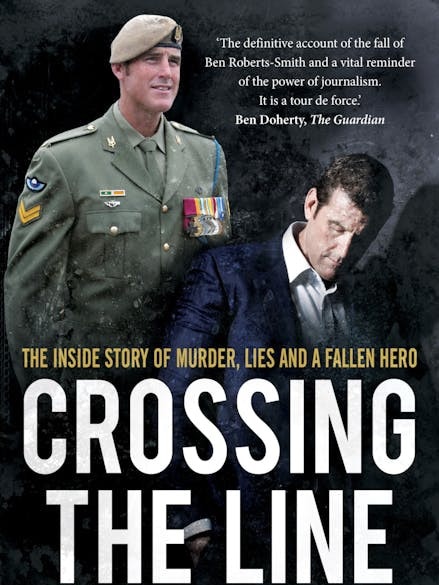
Crossing the Line is McKenzie’s riveting account of how he and Masters chased down witnesses and persuaded them, in the face of relentless intimidation by Roberts-Smith and his cronies, to give the evidence that would eventually damn him in court, costing the Channel 7 executive and one-time Australian Father of the Year his reputation and tens of millions in legal fees.
The story of what happened at the Whisky 108 compound on Easter Sunday 2009 and at the village of Darwan in September 2012 will be familiar to anyone who followed the trial, which ended on June 1, 2023, with Justice Anthony Besanko dismissing Roberts-Smith’s case.
What is new is McKenzie’s insider view of the five-year legal battle: the desperate efforts to talk around reluctant witnesses; the panicked conversations with lawyers; the bizarre interventions by the likes of former AFP boss Mick Keelty and journalist-turned-PR exec Ross Coulthart, who went over McKenzie’s head to assure Fairfax editor James Chessell that Roberts-Smith was an innocent man and warn him that McKenzie’s pursuit of the soldier was “a looming disaster for him and the paper”. This is gripping stuff, candid and insightful (if a tiny bit mawkish at times) about the pressures of a high-stakes defamation case and the likely professional cost of defeat in what he describes as a “Game of Thrones meets Succession” battle.
During the trial Roberts-Smith and his enablers did all they could to stop the journalists from getting their hands on the evidence needed to prove the truth of the war crimes allegations against him. The chief culprit was Roberts-Smith himself, who burnt laptops, buried compromising USBs in his backyard, procured and used burner phones and conspired to frighten off potential witnesses with anonymous emails and letters.
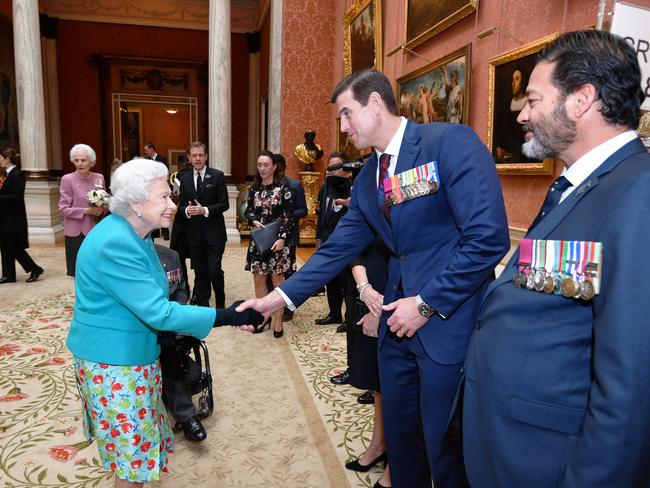
Clouding the moral and ethical issues of the defamation case were the business interests of the various media players. “For Roberts-Smith and his team, Nine’s funding of our defence created a useful narrative,” McKenzie writes. “The adverse allegations about him could now be dismissed as the product of commercial rivalry. According to this logic, the defamation case was a proxy war between the two old commercial television rivals … it was about Nine trying to best … Seven, no matter the pain inflicted on a celebrated war hero.”
In fact the case was about something more fundamental: the ability of a free press to uncover the truth about terrible crimes committed by rogue elements in the armed forces, and to defend it against opponents using the defamation laws to suppress information and punish journalists. It was about proving, in open court, that Ali Jan, a father of seven, had been unlawfully killed and about the moral courage of the Australian soldiers who refused to keep quiet about it.
In his own book about Roberts-Smith, Chris Masters writes that he and McKenzie were originally going to write a book together but that the plan didn’t work out. Crossing the Line is McKenzie’s version of the story and he graciously acknowledges his debt to Masters.
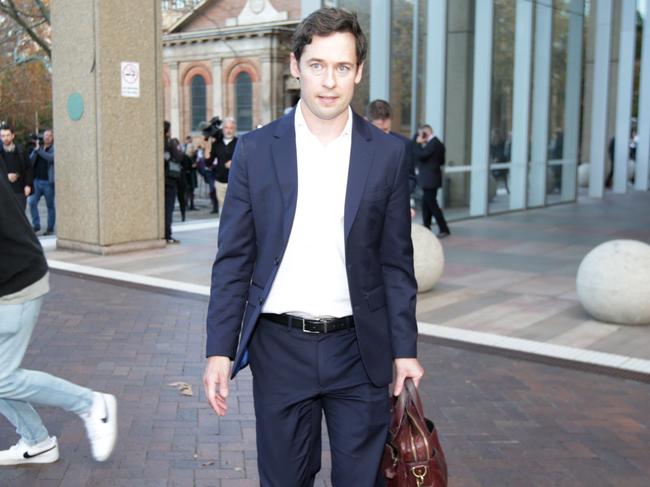
The book was written and published against the clock (McKenzie beat Masters to the market by a fortnight) and at times it shows. It was rather more than a “quarter of a century” between Queen Victoria creating the Victoria Cross and Queen Elizabeth I (or “Queen Elizabeth 1”, as the text has it) appointing Francis Bacon the first Queen’s Counsel. An already exciting story could have done without the laboured device of repeating the same italicised line (“One murder. Just one murder.”) half a dozen times in a chapter. But these are quibbles. McKenzie’s courageous reporting withstood every attack, both inside and outside the courtroom. His book is a fitting summation.
Tom Gilling is an acclaimed Australian writer whose books include military histories
Crossing the Line


